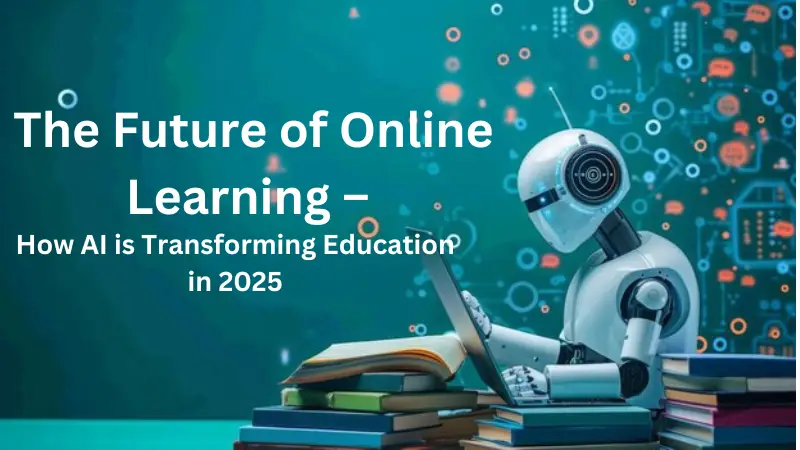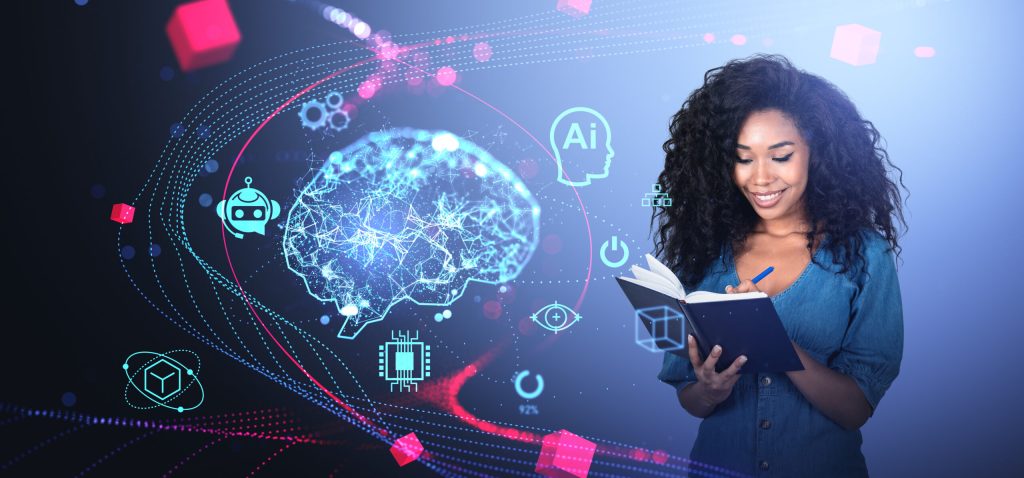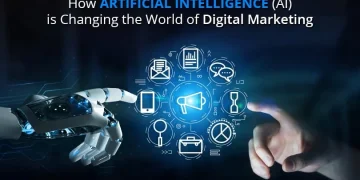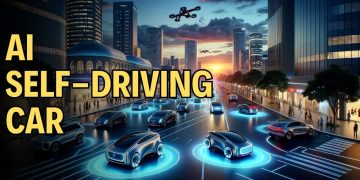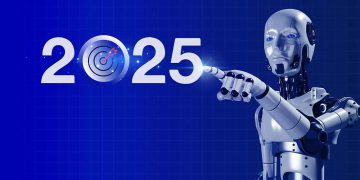In 2025, AI transforming online education 2025 is more than just a trend — it’s a global shift reshaping how students, professionals, and lifelong learners acquire knowledge. Artificial intelligence is helping make learning more personalized, efficient, and accessible than ever before.
From AI tutors that respond instantly to learner questions, to adaptive testing that tailors assessments to each student’s skill level, education technology is entering a new era. Online learning platforms are leveraging AI to create customized learning paths, improve student engagement, and provide real-time feedback that boosts performance.
1. Personalized Learning Through AI
One of the biggest impacts of AI on online education is personalized learning. Unlike traditional classrooms, AI can analyze learner behavior, performance, and preferences to deliver tailored lessons. This ensures that each student moves at their own pace, receiving extra support where needed and skipping what they’ve already mastered.
For example, AI-powered algorithms can recommend supplementary materials such as videos, articles, or practice quizzes when a learner struggles with a concept. On the other hand, high-performing students are offered advanced challenges to keep them engaged. Platforms like Coursera, Udemy, and AI-driven startups are integrating adaptive engines that fine-tune content in real time.
- Customized lesson plans based on learner performance
- Dynamic progress tracking and goal setting
- Automatic resource recommendations
In short, personalized learning helps students learn smarter, not harder — one of the core benefits of AI transforming online education 2025.
2. Adaptive Testing That Understands the Learner
Another game changer is adaptive testing. Instead of giving every student the same standardized test, AI adjusts the difficulty of questions in real time based on the learner’s previous answers. If a student answers correctly, the next question is slightly more difficult; if not, the system provides easier questions or hints to support understanding.
This approach offers multiple advantages:
- Accurately measures student knowledge and skill levels
- Reduces test anxiety through supportive learning
- Improves retention rates by adapting to the learner’s pace
Adaptive testing also helps educators and platforms identify where students are struggling. This data can be used to adjust courses, provide targeted feedback, and improve overall learning outcomes.
3. AI Tutors Offering 24/7 Support
Imagine having a personal tutor who never sleeps, responds instantly, and understands your learning style. AI tutors are making this a reality in 2025. Powered by natural language processing and machine learning, AI tutors can explain complex topics, answer follow-up questions, and guide learners step by step.
Many online education platforms are integrating chatbots and virtual assistants trained to assist in subjects like math, programming, science, and languages. These tutors don’t just give answers—they guide students toward understanding by providing hints, explanations, and additional examples.
Some of the leading benefits include:
- 24/7 learning support without human scheduling
- Instant feedback and clarification
- Scalable education support for millions of learners
This innovation bridges gaps in traditional education by giving students constant access to learning help — a major win for accessibility and inclusivity.
4. AI-Powered Content Creation and Translation
AI is also transforming how learning content is created and shared. With the help of AI, instructors can generate lecture summaries, interactive quizzes, and even immersive simulations faster than ever before. AI tools can also translate courses into multiple languages, expanding their reach to global audiences.
By reducing the time and cost of content development, AI enables educators to focus on teaching strategy and student engagement. This is especially impactful for non-English-speaking regions, where localized content can boost participation and retention.
- Faster course development
- Automatic translations for global learners
- Interactive and immersive learning materials
5. Enhanced Analytics and Real-Time Feedback
In traditional education systems, it can take days or weeks for students to receive feedback. With AI, feedback is instant. Real-time analytics show learners their strengths and weaknesses, allowing them to improve continuously. Educators also gain valuable insights into student engagement, completion rates, and performance trends.
This data-driven approach improves learning outcomes and allows platforms to refine courses for better results. It also supports educators in making informed decisions about curriculum design and teaching methods.
6. How AI Benefits Students, Teachers, and Institutions
The ripple effect of AI adoption goes beyond students. Teachers gain powerful tools to personalize lessons without increasing their workload, while institutions can scale education efficiently to reach more learners globally.
| Group | AI Benefits |
|---|---|
| Students | Personalized learning paths, instant feedback, flexible study schedules |
| Teachers | Automated grading, insights on student performance, enhanced teaching tools |
| Institutions | Lower costs, scalable learning models, global reach |
7. Ethical Considerations and Data Privacy
While the benefits of AI in education are vast, they also raise important questions. Protecting student data, ensuring algorithm transparency, and maintaining fairness are essential. Educational institutions must implement strict data protection policies and ensure that AI tools are used responsibly.
Ethical AI ensures that technology supports learning rather than replacing human educators entirely. Transparency and accountability are key to maintaining trust in online education.
Future Outlook: AI as a Partner in Learning
As we move further into the decade, AI will continue to evolve, becoming even more integrated into everyday learning. Instead of replacing teachers, AI acts as a partner—amplifying human potential, enhancing accessibility, and creating a more inclusive global education system.
In the coming years, innovations like AI-driven virtual classrooms, immersive VR lessons, and predictive learning models will shape how people acquire skills. AI transforming online education 2025 is only the beginning of a much larger shift in how the world learns.
Think About it …
AI is not just a technological upgrade — it’s a transformation of education itself. Personalized learning, adaptive testing, and AI tutors are making education more accessible, effective, and engaging for millions around the world.
For students, this means better results. For educators, it means smarter tools. And for society, it means a more skilled, empowered global population ready to meet the challenges of the future.

